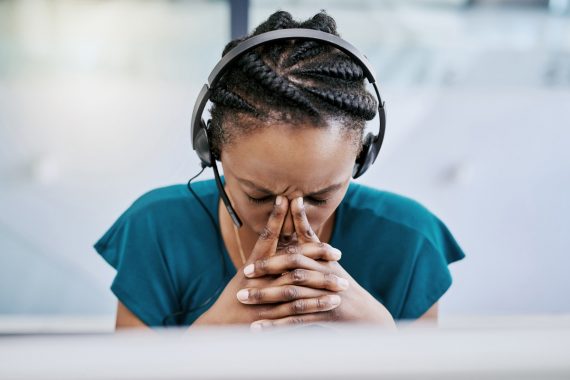The BMA has said that GP practices should ‘move to a waiting list system’ based on clinical need, which could mean patients with non-urgent problems may wait a number of weeks for an appointment.
Updated safe working guidance, issued by the BMA yesterday, also advised practices that the contract only states they need to provide an ‘assessment’ of patients with emergency or urgent problems, and they can direct them to emergency departments, 999 or NHS 111.
It adds that patients who are able to wait should be placed on the waiting list ‘if safe capacity is reached on the day’ in order to help practices deal with the ‘unmanageable’ pressure they are currently facing.
The BMA reiterates its advice from last year that practices should ‘immediately’ move to 15-minute appointments.
The BMA’s safe working guidance said: ‘Demand for appointments is outstripping capacity to such an extent in general practice that we advise practices to move to a waiting list system.
‘There has been a drive towards near-immediate assessment and management of all problems irrespective of actual clinical urgency and this is simply impossible, and not contractually required within GMS.’
It added: ‘Practices are obliged by their GMS contract to provide for the reasonable needs of their patients and for the assessment of urgent problems arising in their patients in their practice area. Emergency or urgent problems can be directed to ED, 999, or NHS 111 and those patients able to wait, if safe capacity is reached on the day in the practice, can be placed on the waiting list.
‘Secondary care has waiting lists based on clinical need and this approach should be adopted in general practice, even if it means that patients with non-urgent problems may wait a number of weeks for an appointment.’
The guidance said that the move is ‘essentially’ the ‘formalisation of the de facto waiting lists for general practice that are already present’ when patients contact their practice for an appointment but are ‘unable to get one that is convenient’.
It added that the approach ‘will result in some patients waiting longer for an appointment with their GP due to insufficient commissioned safe capacity within general practice’.
However, it said that it will ‘allow GPs to focus their resources on those with the greatest need’.
Practices should advise patients placed on a waiting list to call the practice if their condition deteriorates and becomes an emergency, the BMA said.
If their condition changes while on the waiting list, practices ‘may consider reviewing the urgency at this point if they have capacity or else directing the patient to another service eg NHS 111 or direct them to a UTC’.
The guidance also recommended practices:
- ‘Decline to provide’ any ‘unfunded’ work that is not part of the ‘core GMS’ contract
- ‘Cease all non-contractual workload and divert resource to core services’, including ‘giving notice on enhanced services’ if practices ‘consider these of low value’
- Immediately move to 15-minute appointments and cap consultation numbers, with excess demand directed to NHS 111, extended access hubs or other providers
The BMA said the updated guidance comes amid ‘overwhelming pressures with unmanageable workloads coupled with a rapidly shrinking and exhausted workforce’.
The guideline added: ‘The present crisis is so acute that we recommend practices take urgent action to preserve patient care and their own wellbeing.
‘Action must be taken by GPs and practices in order to be able to continue to deliver safe patient care, and preserve the wellbeing and health of our GPs and staff.’
It said: ‘It is likely to be the case that practices provide fewer services to their patients in order to preserve the central core services of general practice.
‘While this may appear to be providing less care, it will in fact mean we concentrate our resource, staff and energy on providing what only we, as GPs, are able to offer, and cease to offer that which other parts of the NHS should be doing.’
Meanwhile, the BMA’s GP Committee has polled GPs on what they would ‘be willing to give up in order to reduce [their] workload’, including ‘being part of a primary care network’.


















READERS' COMMENTS [4]
Please note, only GPs are permitted to add comments to articles
At last the BMA is listening the problem is in practice difficult to do unless we all sign up to it then watch NHSE panic !
Bad luck rural patients. It might be ok going to an urgent treatment centre if near but if you have to travel 30 miles it would not be fair.If GPs suddenly drop seeing patients who are ill or think they are ill It would be appropriate for the Gov to cut resources into GP . More resources to GP is the answer. I guess this proposal is evidence of the death throes of GP. Probably time for a private system to be investigated. I.e do what the dentists have done. Very sad!
Is it my imagination or has the BMA actually said something helpful??
Expectation:
GP Access: same day
Outpatients: six months
Blame GPs for delayed diagnosis and patient disatisfaction.